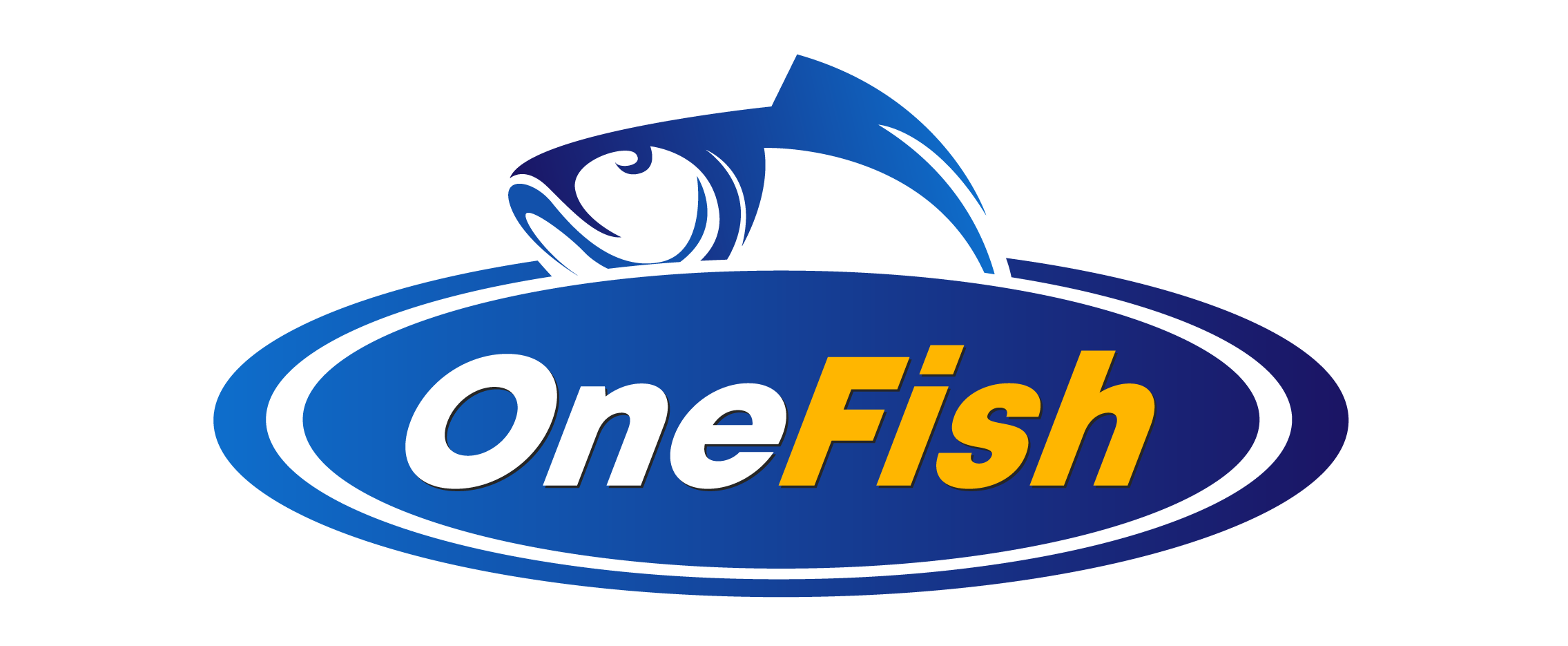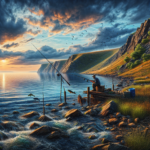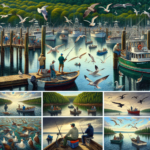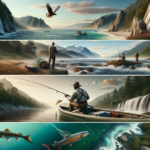Fishing in Virginia: Lakes, Rivers, and Coastal Waters

Introduction
Did you know that Virginia is home to over 176,000 acres of public lakes and 27,300 miles of fishable streams and rivers? Whether you’re an avid angler or a weekend hobbyist, Virginia offers a diverse range of fishing opportunities that cater to all skill levels and preferences. This article will explore the best fishing spots in Virginia, including lakes, rivers, and coastal waters, and provide you with essential information on techniques, species, gear, and more.
Fishing in Virginia matters because it offers not only a recreational activity but also a way to connect with nature, contribute to conservation efforts, and even participate in local events and tournaments. Whether you’re looking to catch your first largemouth bass or compete in a fishing tournament, this guide will help you make the most of your fishing experience in Virginia.
Background/Context
Historical or Cultural Significance
Fishing has been an integral part of Virginia’s history and culture for centuries. Native American tribes, such as the Powhatan, relied on the state’s abundant waterways for sustenance. Over time, fishing evolved from a means of survival to a popular recreational activity. Today, Virginia’s fishing culture is celebrated through various events, festivals, and community gatherings.
Geographical Overview
Virginia’s diverse geography includes the Appalachian Mountains, rolling hills of the Piedmont, and the coastal plains along the Atlantic Ocean. This varied landscape creates a wide range of fishing environments, from freshwater lakes and rivers to brackish estuaries and saltwater coastal waters. The state’s climate is generally mild, with four distinct seasons that influence fishing conditions and species behavior.
Key Points/Details
Fishing Techniques
Technique Overview
Virginia offers a variety of fishing techniques, including fly fishing, spin fishing, and trolling. Fly fishing is popular in the state’s mountain streams and rivers, while spin fishing is commonly used in lakes and coastal waters. Trolling is often employed in larger bodies of water, such as the Chesapeake Bay, to target species like striped bass and bluefish.
When and Where to Use
Fly fishing is best suited for the clear, cold waters of the Appalachian streams, particularly in the spring and fall when trout are most active. Spin fishing can be used year-round in lakes and rivers, with peak seasons varying by species. Trolling is most effective in the summer and fall when larger fish migrate through the Chesapeake Bay.
Recommended Gear
- Fly Fishing: 4-6 weight fly rod, floating line, dry flies, nymphs, and streamers.
- Spin Fishing: Medium-action spinning rod, 6-12 lb test line, soft plastics, crankbaits, and spinnerbaits.
- Trolling: Heavy-action trolling rod, 20-50 lb test line, diving plugs, spoons, and live bait rigs.
Species Information
Species Overview
Virginia’s waters are home to a wide variety of fish species, including largemouth bass, smallmouth bass, trout, catfish, striped bass, and bluefish. Each species has unique habits and preferred habitats, making them suitable targets for different fishing techniques and seasons.
Best Practices
- Largemouth Bass: Use soft plastics and spinnerbaits near submerged structures in lakes and ponds during spring and summer.
- Trout: Fly fish with dry flies and nymphs in mountain streams during spring and fall.
- Striped Bass: Troll with diving plugs and live bait in the Chesapeake Bay during summer and fall.
Location Information
Top Fishing Spots
- Smith Mountain Lake: Known for its largemouth bass and striped bass, with numerous access points and amenities.
- Shenandoah River: Offers excellent smallmouth bass fishing, with scenic views and easy access.
- Chesapeake Bay: A prime location for striped bass, bluefish, and flounder, with various charter services available.
Regulations and Licenses
Virginia requires a fishing license for anglers aged 16 and older. Licenses can be purchased online or at local retailers. Specific regulations, such as catch limits and seasonal restrictions, vary by species and location. It’s essential to check the Virginia Department of Wildlife Resources website for the most up-to-date information.
Seasonal Considerations
Seasonal Variations
Fishing conditions in Virginia change throughout the year, affecting species behavior and angler success. Spring and fall are generally the best seasons for trout and bass fishing, while summer is ideal for coastal species like striped bass and bluefish. Winter can be challenging, but ice fishing is possible in some northern lakes.
Best Times to Fish
- Spring: Trout and bass are most active as water temperatures rise.
- Summer: Coastal fishing for striped bass and bluefish peaks.
- Fall: Trout and bass fishing improves as temperatures cool.
- Winter: Limited opportunities, but ice fishing is possible in some areas.
Events and Tournaments
Event Overview
Virginia hosts several fishing events and tournaments throughout the year, catering to anglers of all skill levels. Notable events include the Big Bass Bash at Smith Mountain Lake and the Virginia Beach Billfish Tournament.
Preparation Tips
- Research the event rules and regulations.
- Practice your techniques and familiarize yourself with the fishing area.
- Ensure your gear is in top condition and pack extra supplies.
Tips and Best Practices
General Tips
- Always check local regulations before fishing.
- Use the right gear for the species and conditions.
- Practice catch and release to support conservation efforts.
Avoid Common Mistakes
- Not checking weather conditions before heading out.
- Using the wrong bait or lures for the target species.
- Ignoring local fishing regulations and catch limits.
Advanced Techniques
- Mastering the art of fly casting for more accurate presentations.
- Using electronics, such as fish finders, to locate fish more effectively.
- Experimenting with different trolling speeds and depths to find the optimal setup.
Gear and Equipment Recommendations
Essential Gear
- Fishing rod and reel appropriate for the target species.
- Fishing line, hooks, and lures or bait.
- Tackle box with essential tools and accessories.
- Fishing license and any required permits.
Optional Gear/Upgrades
- Fish finder or depth sounder for locating fish.
- Waders for fishing in streams and rivers.
- Kayak or small boat for accessing remote fishing spots.
Where to Buy or Rent
Local shops such as Bass Pro Shops and Cabela’s offer a wide range of fishing gear. Online retailers like Amazon and Tackle Warehouse also provide extensive selections. For rentals, check with local marinas and outdoor outfitters.
Safety and Conservation
Safety Tips
- Always wear a life jacket when fishing from a boat or kayak.
- Check weather forecasts and avoid fishing during severe conditions.
- Be aware of local wildlife and avoid disturbing their habitats.
Conservation Practices
- Practice catch and release to help maintain fish populations.
- Follow local regulations and catch limits to support sustainable fishing.
- Dispose of fishing line and other waste properly to protect the environment.
Planning Your Trip
Accommodations
Virginia offers a range of accommodations near popular fishing spots, from campgrounds and cabins to hotels and resorts. Smith Mountain Lake State Park and Shenandoah National Park are excellent options for those looking to stay close to nature.
Travel Tips
- Plan your route in advance and check for any road closures or construction.
- Consider renting a car if you’re flying into Virginia to access remote fishing spots.
- Pack a cooler with snacks and drinks for long fishing trips.
Additional Activities
Virginia offers plenty of activities for non-fishing time, including hiking, birdwatching, and visiting historical sites. The Blue Ridge Parkway and Colonial Williamsburg are popular attractions that provide a break from fishing while still enjoying the outdoors.
Frequently Asked Questions (FAQs)
Do I need a fishing license in Virginia?
Yes, anglers aged 16 and older are required to have a fishing license in Virginia. Licenses can be purchased online or at local retailers.
What are the best times of year to fish in Virginia?
Spring and fall are generally the best times for trout and bass fishing, while summer is ideal for coastal species like striped bass and bluefish. Winter offers limited opportunities but can be good for ice fishing in some areas.
What gear do I need for fly fishing in Virginia?
A 4-6 weight fly rod, floating line, and a selection of dry flies, nymphs, and streamers are recommended for fly fishing in Virginia’s mountain streams and rivers.
Conclusion
Fishing in Virginia offers a diverse and rewarding experience for anglers of all skill levels. From the tranquil mountain streams to the bustling coastal waters, there’s something for everyone. By understanding the best techniques, species, and locations, you can make the most of your fishing adventures in Virginia. So grab your gear, get your license, and head out to explore the abundant fishing opportunities this beautiful state has to offer.
Whether you’re looking to catch your first fish or compete in a tournament, Virginia’s waters are waiting for you. Happy fishing!




